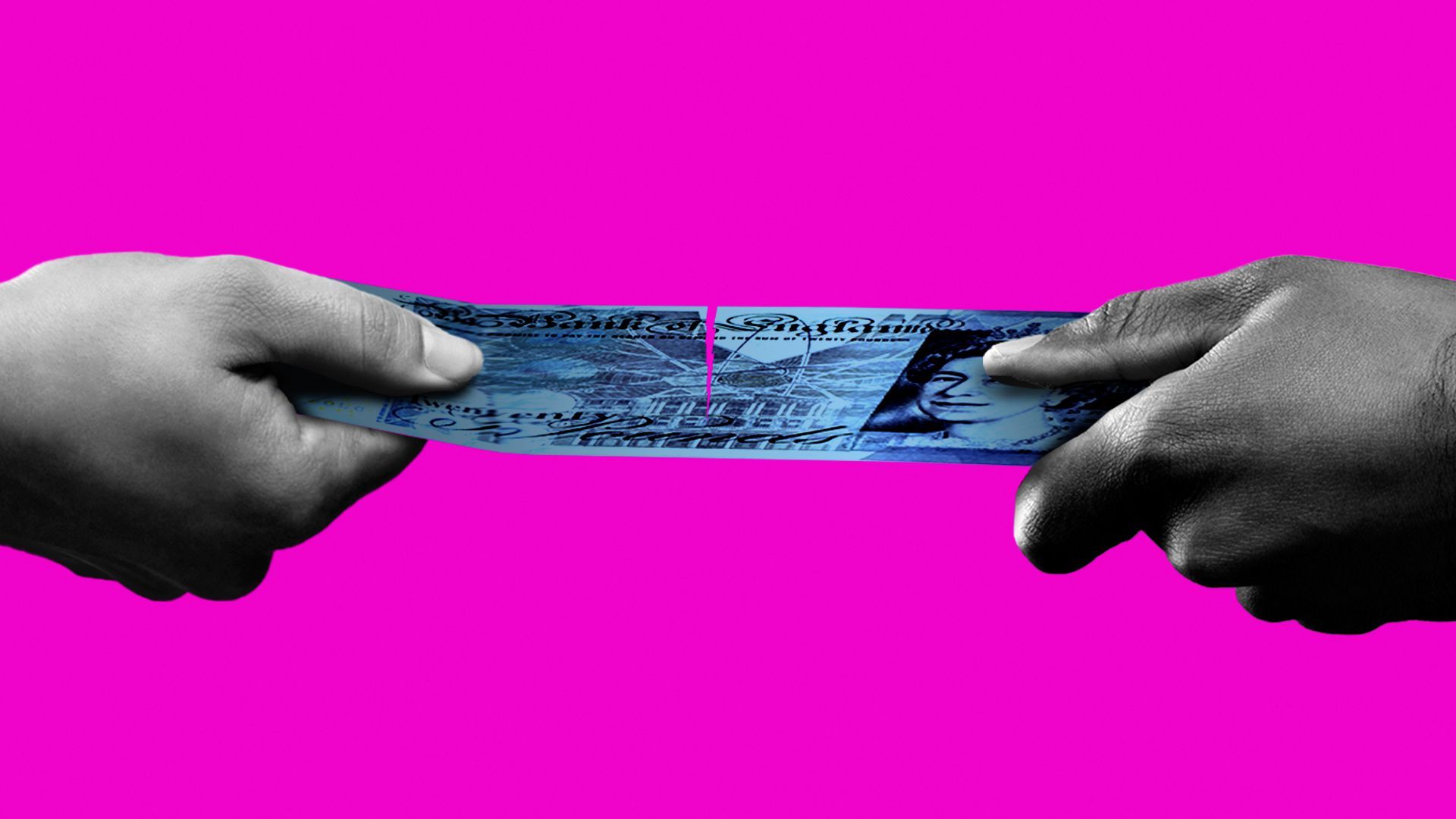U.K. bond market turmoil highlights tilt toward “fiscal dominance”
Add Axios as your preferred source to
see more of our stories on Google.

Illustration: Annelise Capossela/Axios
The turmoil in the British bond market is the backdrop for a battle between the nation's politicians and its central bank over who really runs the U.K. economy.
Driving the news: With British government bond prices plunging and bond markets showing signs of growing dysfunction, the U.K. central bank announced an emergency plan Wednesday to start buying as much as £65 billion in government bonds, known as gilts.
Why it matters: The Bank of England's decision amounted to a sudden reversal of course — it had been trying to combat inflation by hiking rates.
- The announcement, however, essentially meant the bank had promised to lower some long-term interest rates, in an effort to clean up a market mess created by the newly installed Conservative Party government of Prime Minister Liz Truss.
- Truss defended her tax cuts Thursday.
- The plans for tax cuts and large fiscal deficits — the opposite of what would be expected in an inflationary environment — created a panic in the market, sending the British pound to an all-time low and prompting a collapse in government bond prices. That's what forced the BoE's hand.
"The purpose of these purchases will be to restore orderly market conditions. The purchases will be carried out on whatever scale is necessary to effect this outcome," the BoE said in the announcement, early Wednesday.
Between the lines: While couched in the technocratic language of central banking, the BoE's surprise announcement was actually part of a growing power struggle between the central bank and the government over how to handle the U.K.'s struggling economy.
The big picture: For most of the last 30 years, separation of economic policy powers has become typical in most advanced, wealthy countries.
- Governments — or as they're described by central bankers, "fiscal authorities" — control taxing, spending and borrowing decisions.
- The job of central banks is to ensure stable prices — which they do by raising or lowering interest rates, which slows down or speeds up economic activity.
- Under this system, central banks are supposed to have independence from the politicians running the country. That's because sometimes — for instance, when inflation is high — the bank has to do politically unpopular things, like raising rates, starting recessions and throwing people out of work.
Yes, but: Economic theorists have long warned that over time, governments can slowly establish influence over central banks, essentially by running up very large deficits, a phenomenon known as "fiscal dominance."
- When a central bank is subject to fiscal dominance, giant amounts of government debt raise the risk that the markets become saturated with the debt, leaving the central bank supporting the market by purchasing government bonds. (The alternative is often a market meltdown.)
- As central bankers tend to be leery of financial crises, they typically grit their teeth and buy the bonds.
Our thought bubble: Seems like a pretty apt description of what's gone on in the British bond market over the last few days.
What we're watching: Signals about what the BoE will do at its next policy meeting on Nov. 3.
- The bank could trying to re-establish its independent bona fides with a massive rate increase, the financial equivalent of telling the Truss government it won't be forced to finance large government debts.
- But it would have to be careful that such a symbolic gesture wouldn't accidentally crash the economy.
